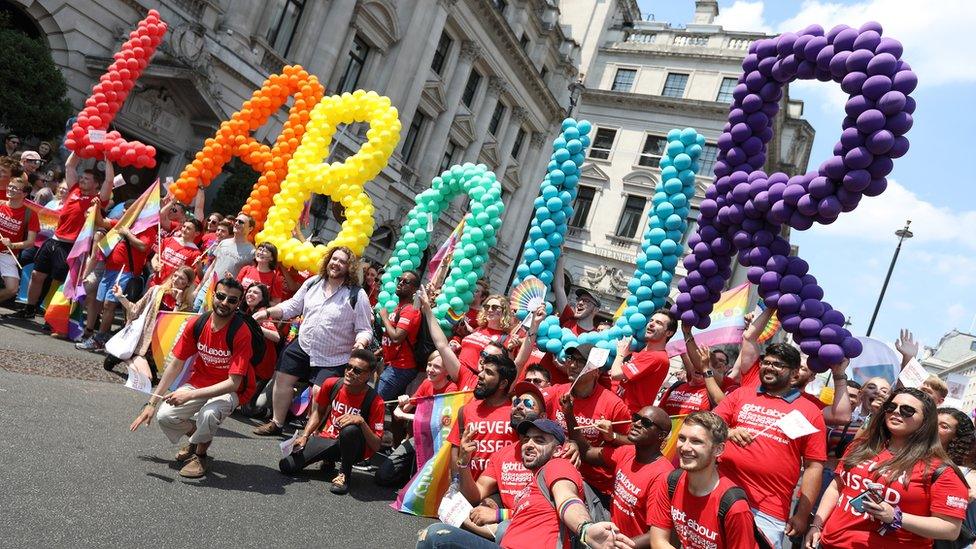Labour leadership: Emily Thornberry eliminated from race
- Published

Emily Thornberry has been eliminated from the Labour leadership race after failing to secure enough nominations.
At the midnight Friday deadline, the shadow foreign secretary had 31 nominations from local constituency parties - two short of the 33 needed.
She did not get any nominations from Labour Party affiliates - the other route on to the ballot paper.
It leaves Sir Keir Starmer, Rebecca Long-Bailey and Lisa Nandy in the running to succeed Jeremy Corbyn.
All three had already qualified with the support of unions and affiliate groups.
Ms Thornberry tweeted, external that it was a "shame to miss out on the rest of the race, but good luck to the three superb remaining candidates".
She said she and her campaign team "gave it everything".
"I'll have a week of rest now, then it's back to the day job of holding this wretched Tory government to account on its foreign policy, and doing so with the same passion, tenacity and forensic skill I've shown for four years in that role," she added.
'Monolithic' campaigns
The shadow foreign secretary had struggled for support throughout the contest.
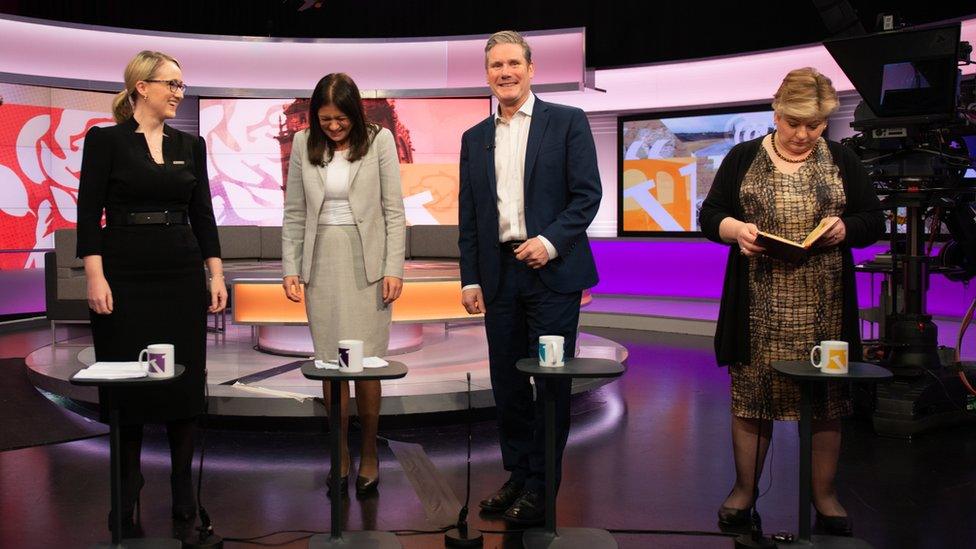
Ms Thornberry took part in hustings on the BBC's Victoria Derbyshire programme last week
She only scraped through the first round of nominations by Labour MPs and MEPs with 23 votes - one more than the 22 required - after Clive Lewis dropped out.
Labour MP for York Central, Rachel Maskell, one of the MPs to nominate Ms Thornberry, told the today programme it had been a "strange contest" which had "polarized support" .
She described Ms Thornberry as being an "incredibly talented strong woman," and a "tireless campaigner" who had "a lot to offer our party as she moves forward."
She said she would like to see Ms Thornberry stay in her foreign secretary role to set out a human rights agenda "in the way we interact with the world" but said Sir Keir would now get her support.
Ms Maskell said: "I believe that he has set out a very clear position of leadership and leadership is a very special quality that few hold."
Ms Thornberry admitted to suffering from a "squeeze" by the "monolithic" campaigns of Sir Keir and Ms Long-Bailey.
Under party rules, candidates had to secure support from three unions or affiliates representing 5% of the membership, or 33 constituency Labour parties.
Labour members will begin voting on the remaining candidates from Monday 24 February. Voting closes on 2 April, with the result announced two days later.
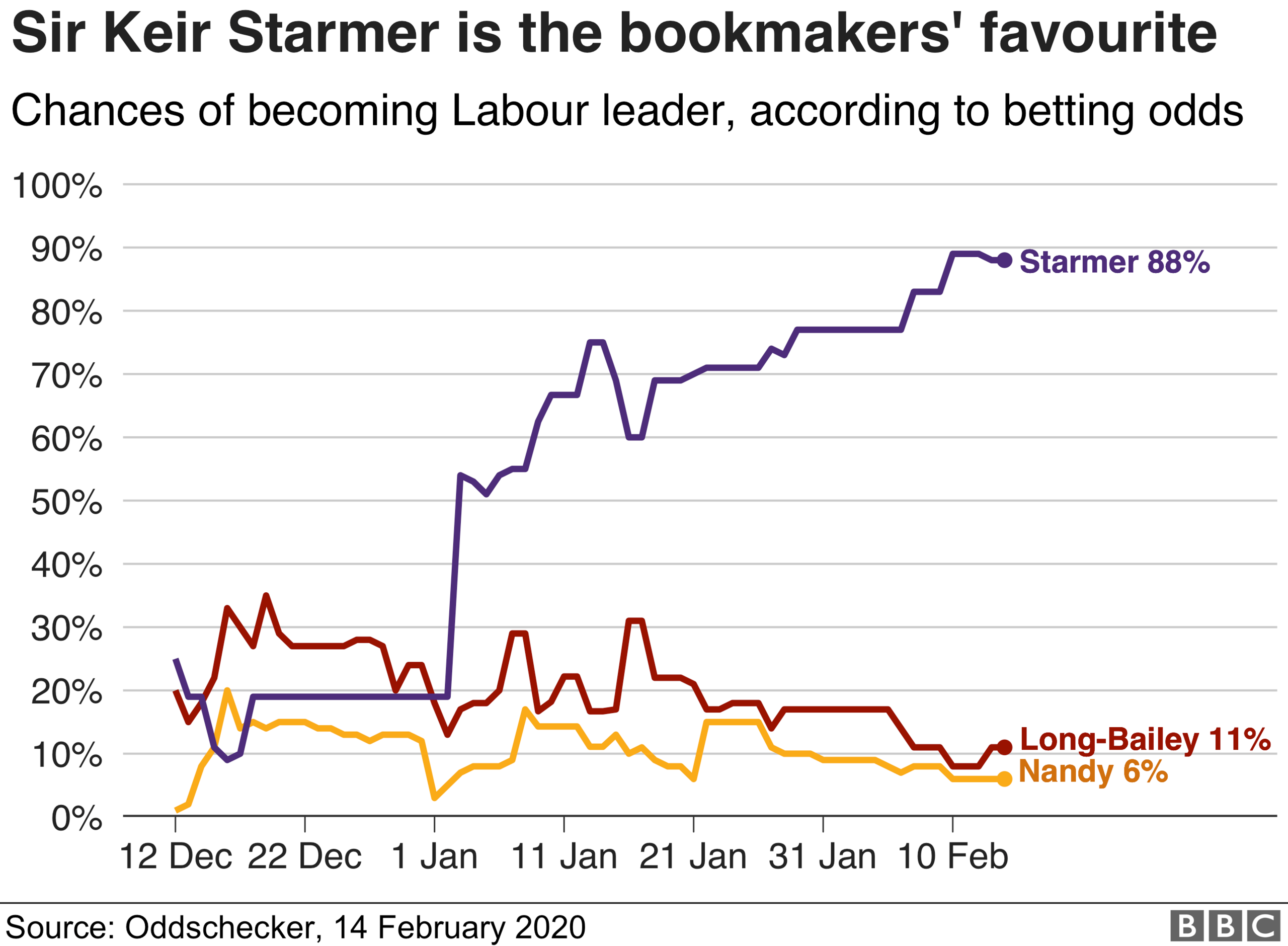

Current leader Mr Corbyn confirmed he would step down at his election count in December as his party faced its worst performance in terms of seats since 1935.
There is also a contest running for the next deputy leader of the party, following Tom Watson's resignation in December.
All five candidates who put themselves forward made the ballot: shadow education secretary Angela Rayner, shadow justice secretary Richard Burgon, shadow equalities minister Dawn Butler, Scotland's only remaining Labour MP Ian Murray and Tooting MP Rosena Allin-Khan.
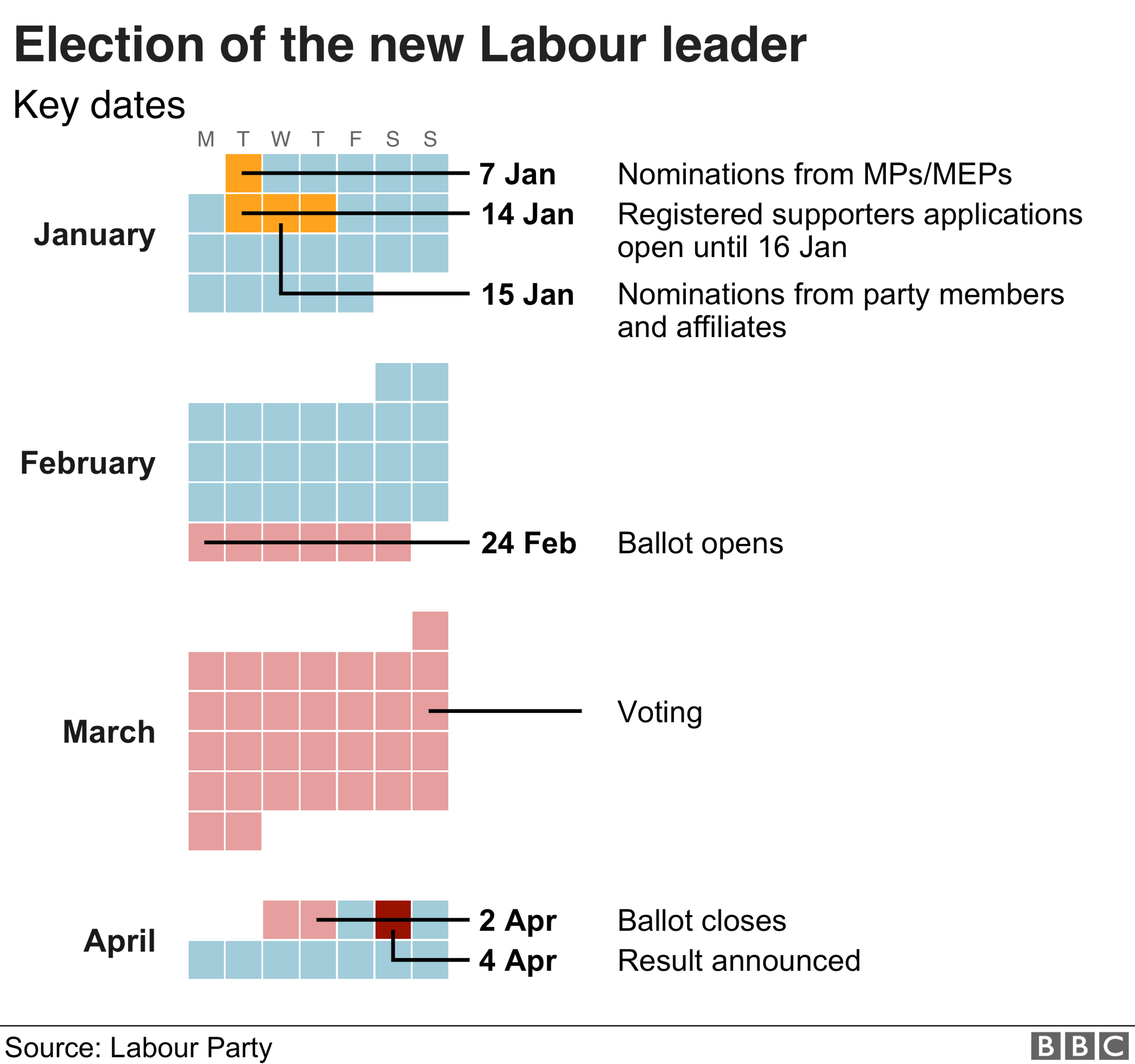

- Published13 January 2020
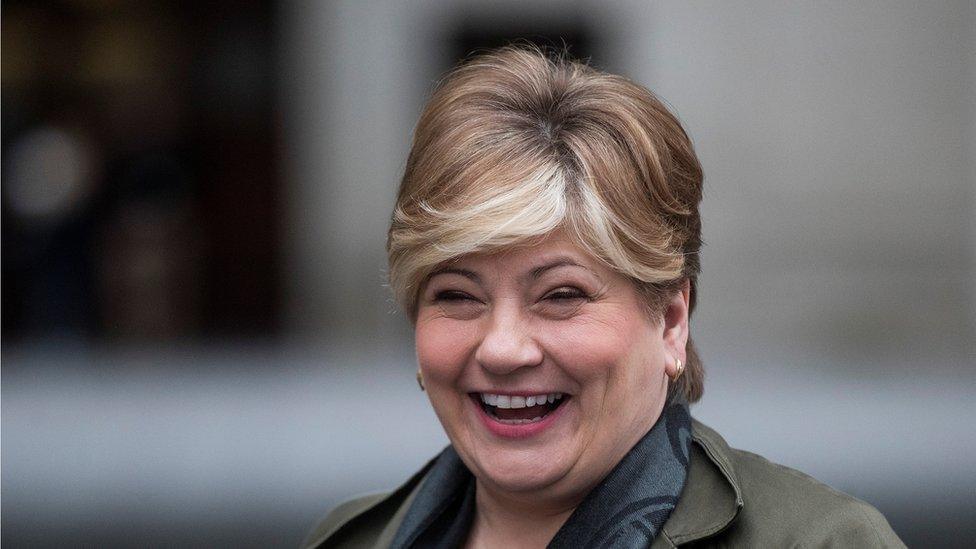
- Published17 February 2020
